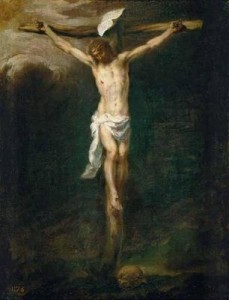
Evangelical Essentials (Part Eight)
So whether we are at home or away, we make it our aim to please him. For we must all appear before the judgment seat of Christ, so that each one may receive what is due for what he has done in the body, whether good or evil.
2 Cor 5:9-10 (ESV)
No man ever said, at the end of his days, ‘I have read my Bible too much, I have thought of God too much, I have prayed too much, I have been too careful with my soul.’
HT: J.C. Ryle Quotes
Evangelicals believe in a final judgment because scripture frequently affirms the fact that there will be a verdict by God in which he decides the eternal destiny of believers and unbelievers. All will stand before the great judgment seat of Christ in resurrected bodies and hear the Lord’s declaration of their unending fate.
If we have given our lives to Christ, then we can be assured that Christ’s righteousness has covered our guilty stains and that we will be delivered from condemnation.
It is important to realize that this judgment of believers will be a judgment to evaluate and bestow various degrees of reward, but the fact that they will face such a judgment should never cause believers to fear that they will be eternally condemned. Jesus says, “He who hears my word and believes him who sent me, has eternal life; he does not come into judgment but has passed from death to life” (John 5:24). Here “judgment” must be understood in the sense of eternal condemnation and death, since it is contrasted with passing from death into life. At the day of final judgment more than at any other time, it is of utmost importance that “there is therefore now no condemnation for those who are in Christ Jesus” (Rom 8:1).
[Wayne Grudem, Systematic Theology: An Introduction to Biblical Doctrine (Grand Rapids, MI: Zondervan, 1994), 1143.]
As Christians, we begin understanding the final judgment by acknowledging that we are accountable to God: we will be judged for our faithfulness to the gospel, behavior in his name, and the quality of our ministries. We must give an account to God for the gifts, opportunities, and abilities that God granted us in this life (1 Cor. 3:10-15). We will have to explain how we used God’s gifts for his glory. This reverential awe is a sure cure for our carelessness. It is dangerous to claim a relationship with Jesus, while no genuine fruit is manifesting in our lives. We want to be diligent that we are actually walking in the “works that have been prepared for us to do†(Eph. 2:10).
When God asks what we did with our lives, will we be able to say, “I invested in people, served the church, reached out to the world, and advance the kingdom to the best of my ability?†Or  will we have to admit, “I wasted my life playing all hundred levels of Warcraft, watched every S.E.C. football game since 1985, and alienated everyone around me.â€
As Evangelicals, the doctrine of final judgment grants us a a healthy fear of God and a determination to be faithful with our limited time on this earth.








